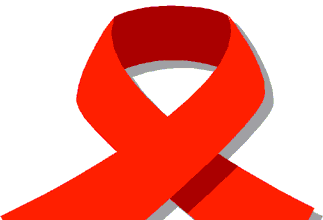Dr. Angeli Achrekar, Deputy Executive Director of Programmes and Assistant UN Secretary-General at UNAIDS, emphasized that ending the HIV/AIDS epidemic demands a comprehensive strategy.
Speaking at the 2024 Nigeria HIV Prevention Conference in Abuja, she stressed that the ultimate goal of HIV prevention is to halt new infections and make strategic investments that reduce the number of people requiring treatment and the associated costs.
Achrekar highlighted the significant progress made in the global HIV response, with 86% of the 39 million people living with HIV aware of their status, 76% receiving life-saving treatment, and 71% achieving viral suppression.
“AIDS-related deaths have been averted, with a huge investment in the health systems, and the recognition of the key role of communities in efforts to end AIDS. We have also seen progress in addressing societal barriers and enablers of HIV putting several countries a step closer to ending AIDS as a public health threat by 2030.
“Why then should we talk about HIV prevention? We are quite not on track.
“Despite the availability of a wide array of effective HIV prevention tools and methods and a massive scale-up of HIV treatment in several countries within recent years, new infections among adults globally have not decreased sufficiently as expected,” she mentioned.
Dr. Achrekar cited alarming global statistics, revealing that in 2022, approximately 4,000 people – both adults and children – contracted HIV every day, resulting in a staggering 1.3 million new cases.
She emphasized the urgent need for intensified efforts to achieve the global goal of reducing new HIV infections to less than 370,000 per year by 2025.
“Despite its efficacy, there remains a stark underinvestment in HIV prevention. In sub-Saharan Africa, only 42 per cent of districts with high HIV incidence have dedicated HIV prevention programs.
“We, therefore, require an acceleration of progress in HIV prevention. HIV prevention is not only a moral imperative but also a pragmatic and cost-effective public health strategy.
“Let’s remind each other that no single prevention method or approach can stop the HIV epidemic on its own.
“Several methods and interventions have proved highly effective in reducing the risk of, and protecting against HIV infection, including male and female condoms, the use of antiretroviral medicines as pre-exposure prophylaxis, voluntary male medical circumcision,
behaviour change interventions to reduce the number of sexual partners, the use of clean needles and syringes, opiate substitution therapy and the treatment of people living with HIV to reduce viral load and prevent onward transmission,” she said.
According to Achrekar, effective approaches that cater to the unique needs of various groups, such as key populations, adolescents, young people, women, and other high-priority groups, should be recognized and prioritized to empower them to protect themselves and others from HIV.
“Over the years, we have observed three interconnected reasons that underpin the failure to implement effective Prevention Programmes to scale – lack of political commitment and, as a result, inadequate investment; reluctance to address sensitive issues related to young people’s sexual and reproductive needs and rights, key populations, and harm reduction and the absence of systematic and sustainable implementation of prevention programmes.
“We know that placing communities at the centre of HIV prevention programs significantly enhances their effectiveness. Programmes led by community-based organisations yielded a fourfold increase in consistent condom use among at-risk populations. We need to continue to support communities with the resources they need to excel,” she stated.
Achrekar noted that Nigeria has made limited progress in preventing mother-to-child transmission of HIV, with only 30% of eligible women having access to these crucial services, indicating a significant gap in coverage.
“Nigeria is among the countries with the slowest decline in new HIV infections among children. In 2020, there were an estimated 21,000 new child HIV infections in Nigeria, the highest in the world, which accounted for 14 per cent of the global estimate.
“I understand that funding is currently not one of the major challenges of the PMTCT program in Nigeria. We would want to see renewed and intensive efforts to achieve the level ofPMTCT program scale-up needed to meet the eMTCT goals.
“The future of Nigeria’s children cannot be left unchecked, concerted and urgent action must be taken to avert children being consigned to live a lifetime with a virus that is now preventable. We need to end the vertical transmission of the epidemic to have an AIDS-free generation in Nigeria,” she further stated.
Achrekar urged immediate action to address the disparities and injustices that drive the AIDS epidemic, emphasizing the need to tackle the root causes of the crisis.
